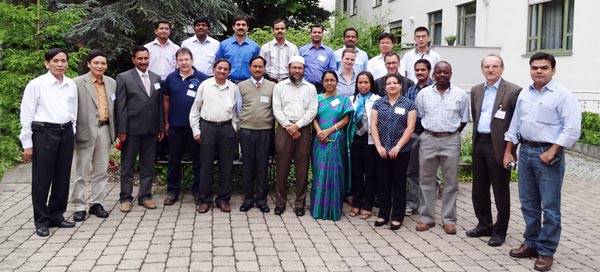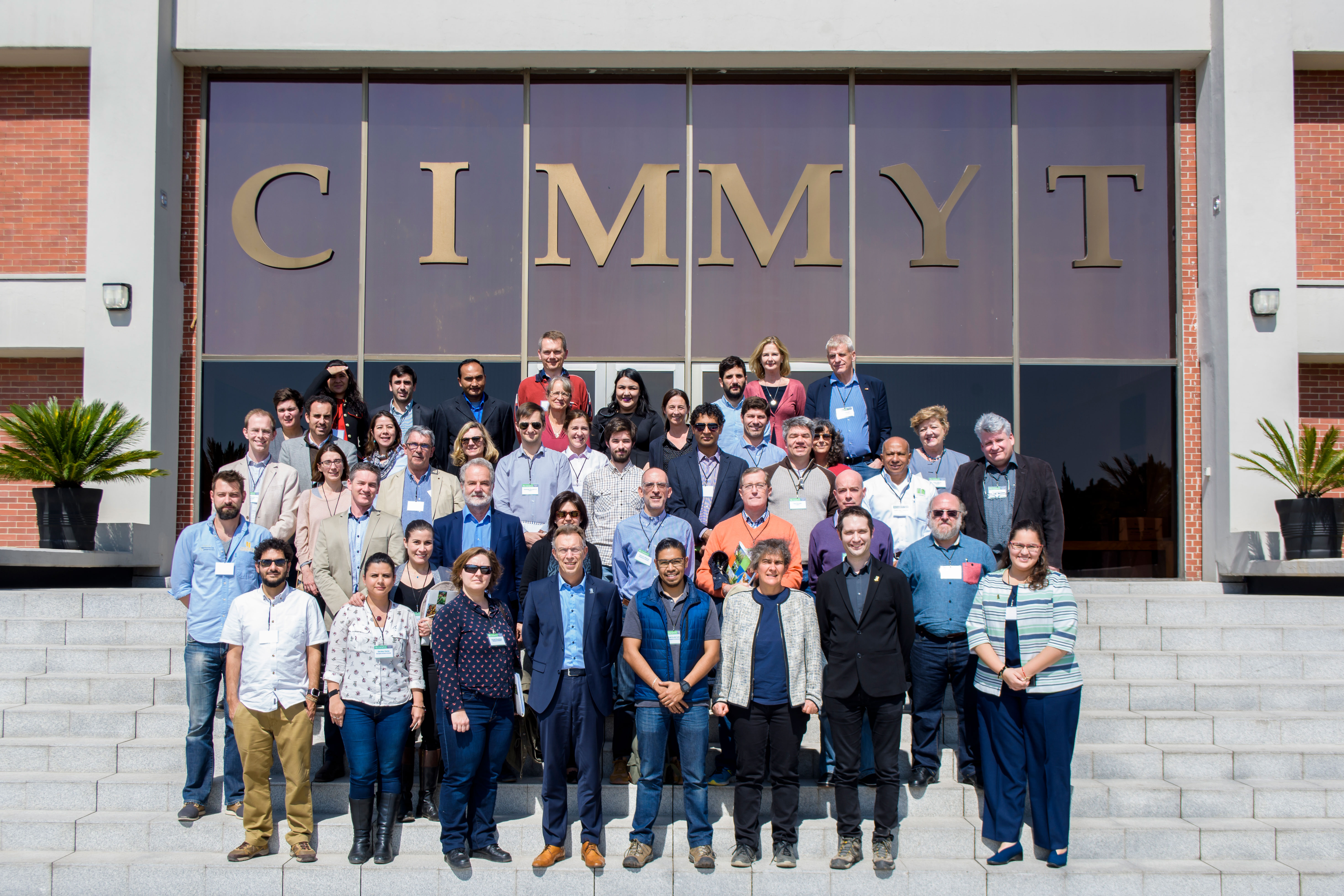The ‘Abiotic stress tolerant maize for Asia’ (ATMA) project aims to increase incomes and food security for the poor of South and southeast Asia, with the assistance of Deutsche Gesellschaft für Internationale Zusammenarbeit (GIZ). The second phase was launched in May 2011, and on 11 June 2012, the first annual progress review and planning session took place at the University of Hohenheim (UH), Stuttgart, Germany.

All the collaborating institutions were represented, including: the Directorate of Maize Research (DMR), Maharana Pratap University of Agricultural Science & Technology, India, Acharya NG Ranga Agriculture University, India, the National Maize Research Institute (NMRI), Vietnam, Bangladesh Agricultural Research Institute, the Institute of Plant Breeding, Philippines, UH, Germany, and CIMMYT.
The meeting began with a warm welcome from Albrecht E. Melchinger (UH), who highlighted the partnerships between UH and various institutions of the CGIAR, but in particular the partnership between UH and CIMMYT, which has existed for more than 20 years. In the opening session, Raman Babu, maize molecular breeder, CIMMYT, discussed recent advances in genomic selection and the genome-wide association mapping approach, focusing on its potential use in maize breeding, particularly for complex traits such as drought and water-logging.
The ATMA project country leaders, including Melchinger, R. Sai Kumar (DMR), Le Quy Kha (NMRI), and Bhagya Rani Banik, then presented the project’s progress over the past year. During this time, socio-economic studies were carried out, and these were jointly presented by T.R. Prabhakarna (CIMMYT-Delhi) and V.K. Yadav (DMR). After summarizing CIMMYT-Asia’s overall progress, CIMMYT’s senior maize physiologist and ATMA project coordinator, P.H. Zaidi, went on to outline areas that need special attention over the coming year in order to meet the project’s
milestones and commitments.
Led by MT Vinayan, post-doctoral fellow at CIMMYT-Hyderabad, the afternoon session focused on creating a detailed work-plan, assigning tasks among partners, and discussing activities for the next year. Zaidi mentioned that to date, all the multi-location trials have been conducted in India due to issues in exporting of trials to partners in other countries. However, since the export permit is now available, the ATMA trials will now be shipped to partners from Bangladesh, Philippines, and Vietnam for evaluation at their sites.
Delegates at the meeting also discussed how the ATMA project will provide opportunities for further research and learning. Among these, ATMA partners will have the opportunity to attend a capacity building workshop on “Double Haploid in Maize Breeding” to be held at UH. Details of the research project that ATMA Ph.D. scholar Do Van Dung (NMRI) will be conducting were also discussed and finalized, while two interns, one each from Bangladesh and Vietnam, have been invited to work at CIMMYT-Hyderabad. Their six-week placements will provide them with hands-on experience on key aspects of breeding for enhancing water-logging and drought tolerance in maize.
 Climate adaptation and mitigation
Climate adaptation and mitigation 